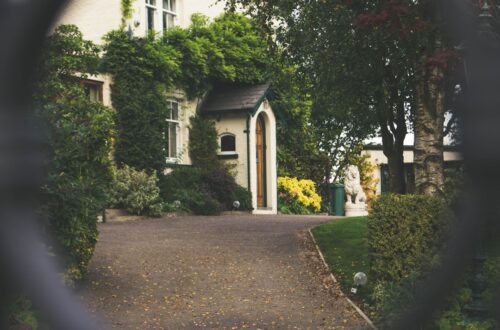When considering purchasing a washing machine, it is important to first assess your needs and budget. Take into account the size of your household and the amount of laundry you typically do in a week. If you have a large family, you may need a washing machine with a larger capacity to handle the increased load. Additionally, consider the features that are important to you, such as energy efficiency, quick wash cycles, or steam cleaning options. These features may impact the price of the washing machine, so it is important to prioritize which features are essential for your needs.
Furthermore, it is crucial to establish a budget for your washing machine purchase. Consider how much you are willing to spend and what type of payment plan or financing options are available to you. Keep in mind that while a higher initial investment may result in long-term savings on energy and water bills, it is important to find a balance between cost and features that meet your needs. By assessing your needs and budget, you can narrow down your options and make an informed decision when researching different brands and models.
In addition, it is important to consider the space available in your home for the washing machine. Measure the area where the machine will be placed to ensure that it will fit properly. Take into account any additional space needed for ventilation and access to water and power sources. By assessing your needs and budget, you can make a well-informed decision when purchasing a washing machine that meets your specific requirements.
Key Takeaways
- Assess your laundry needs and set a budget before starting your search for a washing machine.
- Research different brands and models to find the one that best fits your needs and budget.
- Check the condition of the washing machine, including the drum, hoses, and electrical components.
- Inquire about the machine’s history and maintenance to ensure it has been well cared for.
- Test the washing machine before purchasing to make sure it functions properly and meets your expectations.
- Negotiate the price and warranty terms to get the best deal possible.
- Arrange for delivery and installation to ensure a smooth transition to using your new washing machine.
Research Different Brands and Models
Once you have assessed your needs and budget, it is time to research different brands and models of washing machines. There are various types of washing machines available on the market, including top-loading, front-loading, and compact models. Each type has its own set of advantages and disadvantages, so it is important to consider which type best suits your needs.
When researching different brands and models, consider factors such as energy efficiency, water consumption, noise levels, and durability. Look for washing machines that have high Energy Star ratings and low water usage to save on utility bills. Additionally, read customer reviews and ratings to gauge the reliability and performance of different brands and models. Pay attention to any recurring issues or complaints that may indicate potential problems with certain machines.
Furthermore, consider the available features and settings of each washing machine. Look for models with customizable wash cycles, temperature settings, and special cleaning options for delicate fabrics or heavily soiled items. Some machines also offer smart technology features such as Wi-Fi connectivity and app control for added convenience. By thoroughly researching different brands and models, you can make an informed decision based on your specific needs and preferences.
Check the Condition of the Washing Machine
When purchasing a used washing machine, it is crucial to thoroughly check the condition of the machine before making a decision. Inspect the exterior for any signs of damage or wear, such as dents, scratches, or rust. Additionally, check the door seal and detergent dispenser for any mold or mildew buildup, which may indicate poor maintenance or hygiene.
Furthermore, inspect the interior of the washing machine for any signs of corrosion or damage to the drum, agitator, or other components. Look for any loose or damaged parts that may affect the machine’s performance or safety. Additionally, check the hoses and connections for any leaks or signs of wear that may require replacement.
It is also important to test the machine’s functionality by running a short wash cycle with water only. Listen for any unusual noises or vibrations that may indicate mechanical issues. Pay attention to the water level and drainage to ensure proper operation. By thoroughly checking the condition of the washing machine, you can avoid potential problems and make an informed decision when considering a purchase.
Inquire About the Machine’s History and Maintenance
| Machine | History | Maintenance |
|---|---|---|
| Machine 1 | 5 years old | Regular maintenance every 6 months |
| Machine 2 | 3 years old | Annual maintenance |
| Machine 3 | 8 years old | Bi-annual maintenance |
Before purchasing a used washing machine, it is important to inquire about the machine’s history and maintenance. Ask the seller about the age of the machine and how frequently it has been used. Additionally, inquire about any previous repairs or maintenance that has been performed on the machine. This information can provide insight into the overall condition and reliability of the washing machine.
Furthermore, ask about the maintenance routine followed by the previous owner, including regular cleaning of the drum, detergent dispenser, and filters. Inquire about any issues or malfunctions that have occurred in the past and how they were addressed. Additionally, ask if there are any remaining warranties or service agreements that may transfer to you as the new owner.
It is also important to inquire about the reason for selling the washing machine. Understanding the seller’s motivation for selling can provide valuable information about the machine’s condition and performance. By inquiring about the machine’s history and maintenance, you can make an informed decision based on its overall reliability and potential longevity.
Test the Washing Machine Before Purchasing
Before finalizing your purchase of a washing machine, it is crucial to test the machine to ensure proper functionality. Run a full wash cycle with a small load of laundry to observe how the machine operates. Pay attention to the water level, agitation, spin cycle, and overall performance of the machine.
Additionally, test any special features or settings that are important to you, such as temperature control, quick wash cycles, or steam cleaning options. Ensure that all buttons and controls are responsive and functioning properly. Listen for any unusual noises or vibrations that may indicate mechanical issues.
Furthermore, check for any leaks or water seepage during the wash cycle. Inspect the drainage system to ensure proper water flow and disposal. By thoroughly testing the washing machine before purchasing, you can identify any potential issues and make an informed decision based on its performance.
Negotiate the Price and Warranty

When purchasing a washing machine, it is important to negotiate the price with the seller to ensure that you are getting a fair deal. Research the market value of similar models and use this information as leverage when negotiating the price. Consider any additional costs such as delivery, installation, or warranty coverage when determining a reasonable offer.
Additionally, inquire about any remaining warranty coverage on the washing machine and whether it can be transferred to you as the new owner. A warranty can provide added peace of mind and financial protection in case of unexpected repairs or malfunctions. Negotiate with the seller to include a warranty or service agreement as part of the purchase.
Furthermore, consider any additional incentives or perks that may sweeten the deal, such as free delivery or installation services. Be prepared to walk away if the seller is unwilling to negotiate a fair price or provide reasonable terms. By negotiating the price and warranty coverage, you can ensure that you are making a smart investment in a quality washing machine.
Arrange for Delivery and Installation
Once you have finalized your purchase of a washing machine, it is important to arrange for delivery and installation at your home. Coordinate with the seller or retailer to schedule a convenient delivery date and time. Ensure that there is clear access to the installation area and that any obstacles or barriers are removed beforehand.
Additionally, consider hiring professional installation services if you are not comfortable installing the washing machine yourself. Professional installation can ensure that the machine is properly connected to water and power sources, leveled, and tested for proper operation. This can help prevent potential issues or damage caused by improper installation.
Furthermore, inspect the delivered washing machine for any signs of damage or defects before accepting it. Test the machine again after installation to ensure that it is functioning properly in its new environment. By arranging for delivery and installation with care and attention to detail, you can enjoy your new washing machine with confidence in its performance and reliability.
In conclusion, purchasing a washing machine requires careful consideration of your needs and budget, thorough research of different brands and models, inspection of the machine’s condition, inquiry about its history and maintenance, testing its functionality before purchase, negotiation of price and warranty coverage, and arranging for delivery and installation at your home. By following these steps with diligence and attention to detail, you can make an informed decision when purchasing a washing machine that meets your specific requirements and provides reliable performance for years to come.
If you’re in the market for a used washing machine, you may want to check out this article on The VIVO Team website. They offer tips and advice on what to look for when buying a used appliance, including how to inspect the machine for any potential issues and what questions to ask the seller. It’s important to do your research and make an informed decision when purchasing a used washing machine to ensure you get a reliable and efficient appliance.
FAQs
What should I consider when buying a used washing machine?
When buying a used washing machine, consider the age and condition of the machine, the brand and model, the capacity, and any additional features it may have. It’s also important to ask about the machine’s history, including any repairs or maintenance it has undergone.
How can I ensure the quality of a used washing machine?
To ensure the quality of a used washing machine, ask for a demonstration of the machine in action, if possible. You can also ask for any maintenance records or receipts for repairs. Additionally, inspect the machine for any signs of wear and tear, such as rust, leaks, or strange noises.
What are the benefits of buying a used washing machine?
Buying a used washing machine can be more cost-effective than purchasing a new one. It also allows you to find a higher-end model or brand at a lower price. Additionally, buying used appliances can be more environmentally friendly by reducing waste.
What are the potential drawbacks of buying a used washing machine?
One potential drawback of buying a used washing machine is the lack of warranty or guarantee. There may also be a higher risk of the machine needing repairs or maintenance in the near future. Additionally, it may be more challenging to find a specific model or features in the used market.
How can I maintain a used washing machine?
To maintain a used washing machine, regularly clean the detergent dispenser, door seal, and drum to prevent mold and mildew buildup. Use the appropriate amount of detergent and avoid overloading the machine. Additionally, check and clean the filter and perform regular maintenance as recommended by the manufacturer.





